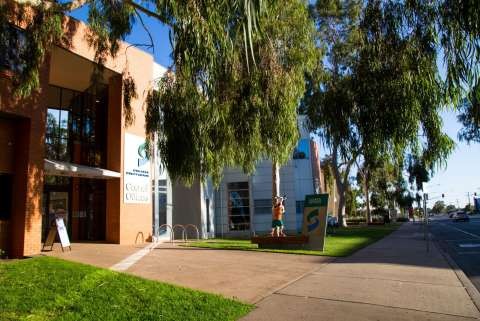Australia should trial multi-school organisations to give schools a better chance of improving student performance, according to a new Grattan Institute report.
The report, Spreading success: Why Australian should trial multi-school organisations, says too many children are treading water in schools that struggle to improve academic performance, meet students’ complex needs, or offer a rich set of life experiences.
Running highly effective schools is difficult. Governments have underestimated how much support principals and teachers need, and have not yet found the best way to provide that support.
Principals are straining under the weight of expectations, and teachers frequently find themselves in workplaces that lack the resources and know-how to provide the training and career development essential for a strong profession.
On their own, most schools are too small to marshal the experienced leadership, specialist expertise, and operational nous needed to provide an excellent education.
While education departments have the organisational heft required, they struggle to provide each school with a clear vision for improvement, and precise and practical operational support. And the advice they provide is sometimes incompatible with day-to-day realities on the ground.
Meanwhile, regional supports and loose, collaborative school networks – designed to help tackle these challenges – are limited in the actions they can take to drive real improvement.
The result is a system in which schools are expected to provide an excellent education, but often feel poorly supported to do so. This means too many children are missing out.
‘While Australia has many exceptional schools, it has struggled to spread enough success to deliver on its promise of educational excellence for all,’ says report lead author and Grattan Institute Education Program Director Jordana Hunter.
‘And when schools fall short, it is unclear who should bear responsibility, and who should take charge of turning things around.’
The report finds that establishing multi-school organisations (MSOs) could help. MSOs are strong ‘families’ of schools, bound together through a united executive leadership that is accountable for students’ results.
Grattan Institute case studies of successful MSOs in England and New York City show that effective MSOs increase the odds of school improvement.
Leading strong families of between 10 and 100 schools, these MSOs have a mandate to maintain high standards, and are accountable for doing so.
Each has a clear blueprint for running an effective school, and the authority to enact this blueprint across multiple schools. This includes turning around schools that have under-performed for decades, as well as helping already good schools become great.
Their ‘Goldilocks’ size helps too. These MSOs are small enough to understand – and ‘own’ – the specific challenges their principals, teachers, and students face. But they are also big enough to marshal the resources and expertise their schools need.
Each Australian school sector should trial MSOs.
State and territory governments and large Catholic dioceses should establish multiple trials.
Independent schools – especially small ones – should consider working with others to trial MSOs too.
Each trial should start with a high-performing ‘beacon’ school, and gradually build to a family of 10 schools within a decade, with further growth possible after that.
While the MSO structure gives schools a clearer shot at improving, it does not guarantee it. Internationally, some MSOs have performed poorly or been mismanaged.
Australia should learn from these mistakes and set clear expectations for the trial MSOs. Governments should also establish a robust regulatory framework for the trials, including rigorous public reviews.
‘Schools and teachers need a lot more support to provide an excellent education for all,’ says Dr Hunter.
‘MSOs offer a powerful way to give schools the boost they need.’








